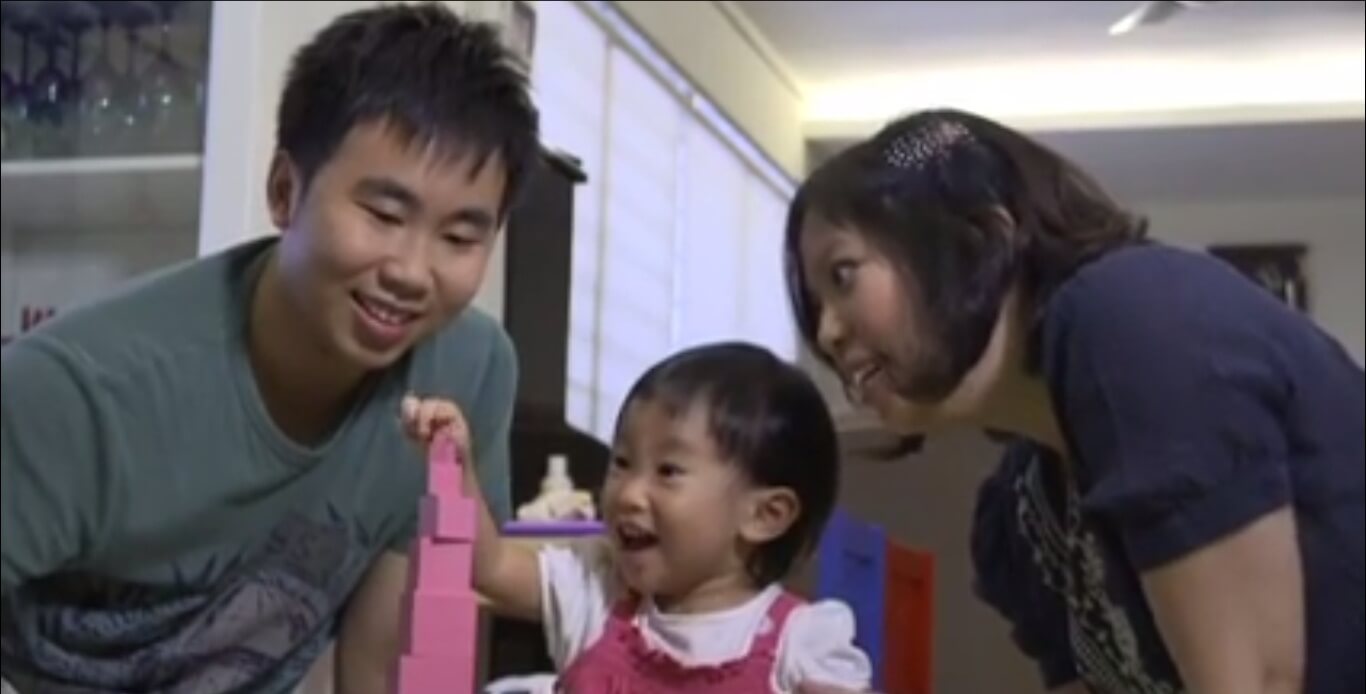Growing with Your Child - 2 to 3 Years

Growing with your Child (2 to 3 years)
This clip looks at the growing independence of young children which is a distinct feature of their development from 2 to 3 years. Rich illustrations are provided to help parents understand their children's need for a wide repertoire of experiences like pretend play, imaginative play and the outdoors. With the emergence of empathy, parents are offered useful tips on how to be positive role model to their children. A 3-P responsive strategy - Pause, Prompt and Praise gives parents a tool to support their children's increasing learning and psychosocial needs.
Welcome to the terrible twos! But with some guidance, it may actually turn into the terrific twos! Your child at this stage requires lots of affection, attention and communication. They want to be understood and they want to understand everything.
You can adopt a 3-step responsive process. Pause and observe your child. Prompt or ask questions to direct the child’s attention. Praise your child’s effort and achievements.
Never underestimate your child. They are capable of absorbing information and details at an amazing pace. So reduce their frustrations and yours by communicating and explaining to your child through interactive or hands-on activities. Engage in activities with your child and release your inner child when playing.
Take your child’s lead when playing games. Sometimes your child may not be in the mood to play. It is alright. Be sensitive to your child’s interests and acknowledge her feelings.
For children who are closer to the three year old mark, activities like pretend play and make believe will hold their attention and spark off their imagination and creativity. Go ahead and provide them with a variety of equipment and accessories to encourage imaginative play.
Act out their favourite fairy tale and add simple household items as costumes and props to enhance these fantastical worlds. Set aside time for family outdoor activities and play dates to different places like the beach, garden, parks, playground and zoo. Let them run and climb freely or pedal a tricycle, but always remember, safety first. Remember, different experiences provide a rich tapestry of learning opportunities for your child.
Take this opportunity to also help them understand empathy as they learn to take the perspective of other people’s feelings. Encouraging your child to help and even comfort another child is a start to developing empathy. You can be a positive role model for your child by providing comfort and emotional support.
By communicating and spending time together, each day will bring new joys for you and your child.
You may also like

From Cabin to Classroom: Journey of an Outstanding Early Childhood Educator
The PDP modules allowed me to get creative with lesson ideas and keep up with the ever-changing Early Childhood sector.

Ms Farhana Binte Mohamed Hassan
Early Years Educator - PCF Sparkletots @ Pioneer Block 987D (CC)

More Than Just a Place for Food
Young children are highly inquisitive, and learn most effectively with activities that allow exploration and experimentation.

Kinderland @ Yio Chu Kang

Little Fingers Create Great Art - A Community Project by Kinderland and Skool4kidz
I believe this collaborative effort is a very meaningful contribution to the SG50 celebrations.

Kinderland and Skool4Kidz